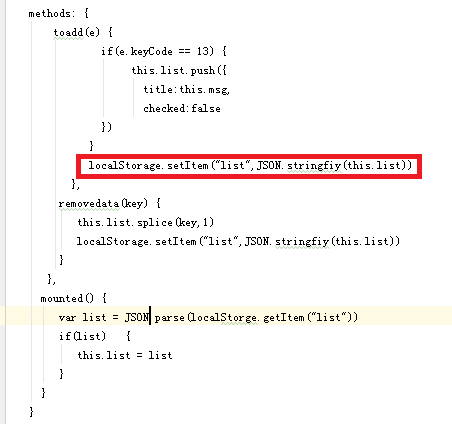Is it possible to divide an unsigned integer by 10 by using pure bit shifts, addition, subtraction and maybe multiply? Using a processor with very limited resources and slow divide.
问题:
回答1:
Here\'s what the Microsoft compiler does when compiling divisions by small integral constants. Assume a 32-bit machine (code can be adjusted accordingly):
int32_t div10(int32_t dividend)
{
int64_t invDivisor = 0x1999999A;
return (int32_t) ((invDivisor * dividend) >> 32);
}
What\'s going here is that we\'re multiplying by a close approximation of 1/10 * 2^32 and then removing the 2^32. This approach can be adapted to different divisors and different bit widths.
This works great for the ia32 architecture, since its IMUL instruction will put the 64-bit product into edx:eax, and the edx value will be the wanted value. Viz (assuming dividend is passed in eax and quotient returned in eax)
div10 proc
mov edx,1999999Ah ; load 1/10 * 2^32
imul eax ; edx:eax = dividend / 10 * 2 ^32
mov eax,edx ; eax = dividend / 10
ret
endp
Even on a machine with a slow multiply instruction, this will be faster than a software divide.
回答2:
Though the answers given so far match the actual question, they do not match the title. So here\'s a solution heavily inspired by Hacker\'s Delight that really uses only bit shifts.
unsigned divu10(unsigned n) {
unsigned q, r;
q = (n >> 1) + (n >> 2);
q = q + (q >> 4);
q = q + (q >> 8);
q = q + (q >> 16);
q = q >> 3;
r = n - (((q << 2) + q) << 1);
return q + (r > 9);
}
I think that this is the best solution for architectures that lack a multiply instruction.
回答3:
Of course you can if you can live with some loss in precision. If you know the value range of your input values you can come up with a bit shift and a multiplication which is exact. Some examples how you can divide by 10, 60, ... like it is described in this blog to format time the fastest way possible.
temp = (ms * 205) >> 11; // 205/2048 is nearly the same as /10
回答4:
Considering Kuba Ober’s response, there is another one in the same vein. It uses iterative approximation of the result, but I wouldn’t expect any surprising performances.
Let say we have to find x where x = v / 10.
We’ll use the inverse operation v = x * 10 because it has the nice property that when x = a + b, then x * 10 = a * 10 + b * 10.
Let use x as variable holding the best approximation of result so far. When the search ends, x Will hold the result. We’ll set each bit b of x from the most significant to the less significant, one by one, end compare (x + b) * 10 with v. If its smaller or equal to v, then the bit b is set in x. To test the next bit, we simply shift b one position to the right (divide by two).
We can avoid the multiplication by 10 by holding x * 10 and b * 10 in other variables.
This yields the following algorithm to divide v by 10.
uin16_t x = 0, x10 = 0, b = 0x1000, b10 = 0xA000;
while (b != 0) {
uint16_t t = x10 + b10;
if (t <= v) {
x10 = t;
x |= b;
}
b10 >>= 1;
b >>= 1;
}
// x = v / 10
Edit: to get the algorithm of Kuba Ober which avoids the need of variable x10 , we can subtract b10 from v and v10 instead. In this case x10 isn’t needed anymore. The algorithm becomes
uin16_t x = 0, b = 0x1000, b10 = 0xA000;
while (b != 0) {
if (b10 <= v) {
v -= b10;
x |= b;
}
b10 >>= 1;
b >>= 1;
}
// x = v / 10
The loop may be unwinded and the different values of b and b10 may be precomputed as constants.
回答5:
Well division is subtraction, so yes. Shift right by 1 (divide by 2). Now subtract 5 from the result, counting the number of times you do the subtraction until the value is less than 5. The result is number of subtractions you did. Oh, and dividing is probably going to be faster.
A hybrid strategy of shift right then divide by 5 using the normal division might get you a performance improvement if the logic in the divider doesn\'t already do this for you.
回答6:
On architectures that can only shift one place at a time, a series of explicit comparisons against decreasing powers of two multiplied by 10 might work better than the solution form hacker\'s delight. Assuming a 16 bit dividend:
uint16_t div10(uint16_t dividend) {
uint16_t quotient = 0;
#define div10_step(n) \\
do { if (dividend >= (n*10)) { quotient += n; dividend -= n*10; } } while (0)
div10_step(0x1000);
div10_step(0x0800);
div10_step(0x0400);
div10_step(0x0200);
div10_step(0x0100);
div10_step(0x0080);
div10_step(0x0040);
div10_step(0x0020);
div10_step(0x0010);
div10_step(0x0008);
div10_step(0x0004);
div10_step(0x0002);
div10_step(0x0001);
#undef div10_step
if (dividend >= 5) ++quotient; // round the result (optional)
return quotient;
}


